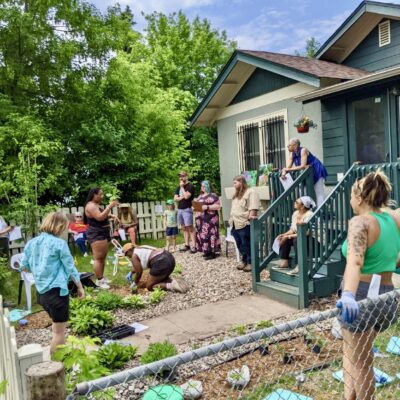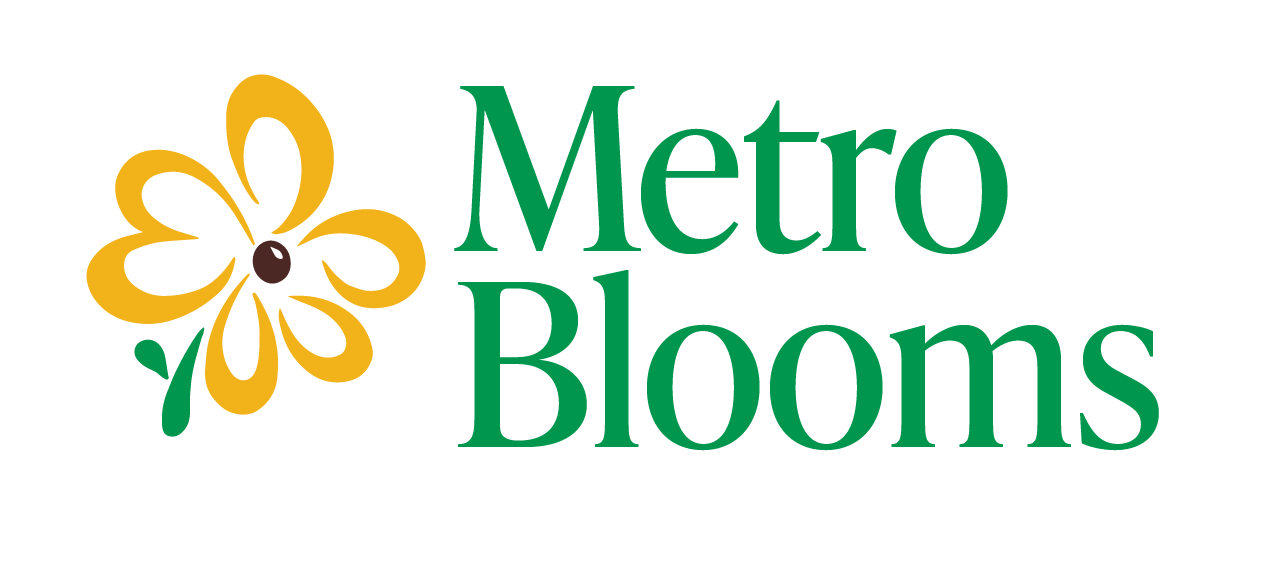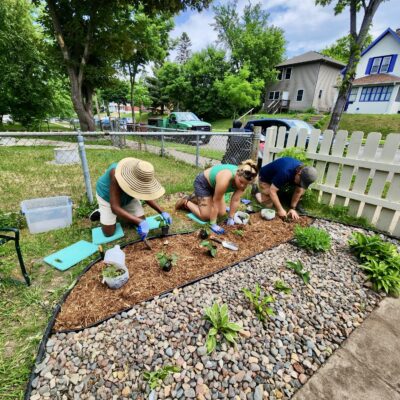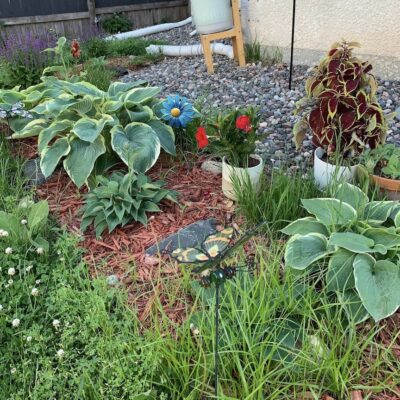
Shannon modestly calls herself a “first-grader” when it comes to gardening. But she clearly knows a thing or two. Just ask about her yard, and she’ll tell you about her hostas and rhododendron; the hydrangea near her front porch that exploded in blooms last summer; her royal oak, Ralph; and the most recent addition: a small planting of bee-friendly coneflowers in her front yard.
Shannon planted the coneflowers after attending a Metro Blooms workshop, last August, where she learned about the importance of native species like coneflowers for providing food for pollinators. “After the event, I went and got the coneflowers specifically because they are pollinator attractors,” she said.
It was part of a partnership between Metro Blooms, the City of Lakes Community Land Trust (CLCLT) and the City of Minneapolis to provide workshops on sustainable gardening and yard care. CLCLT is a Minneapolis non-profit that helps people become homeowners. The land trust is in partnership with the homeowner, where CLCLT owns the land and the homeowner owns the buildings and improvements on the land. This makes it easier for buyers, who are eligible based on income, to afford a mortgage. Its portfolio includes some 500 homes in Minneapolis. Many of the homes are in North Minneapolis. Shannon, a CLCLT homeowner, lives in the area, in the Cleveland Neighborhood.
As part of its work, CLCLT also provides homeowners with helpful resources on taking care of their homes, whether it be help finding a plumber or assistance for expensive repairs, or workshops on topics like water intrusion or winterizing a home.
“We’re with homeowners until they decide to sell out of the land trust, providing support,” said CLCLT Stewardship Manager Sheng Vang. She works directly with homeowners and organizes programs that help them with the practical aspects of home ownership.
Vang had known about Metro Blooms’ work for several years. She had talked with us about the possibility of in-person workshops so homeowners could learn more about sustainable yard practices. Like many other things, this was put on hold during the pandemic.



